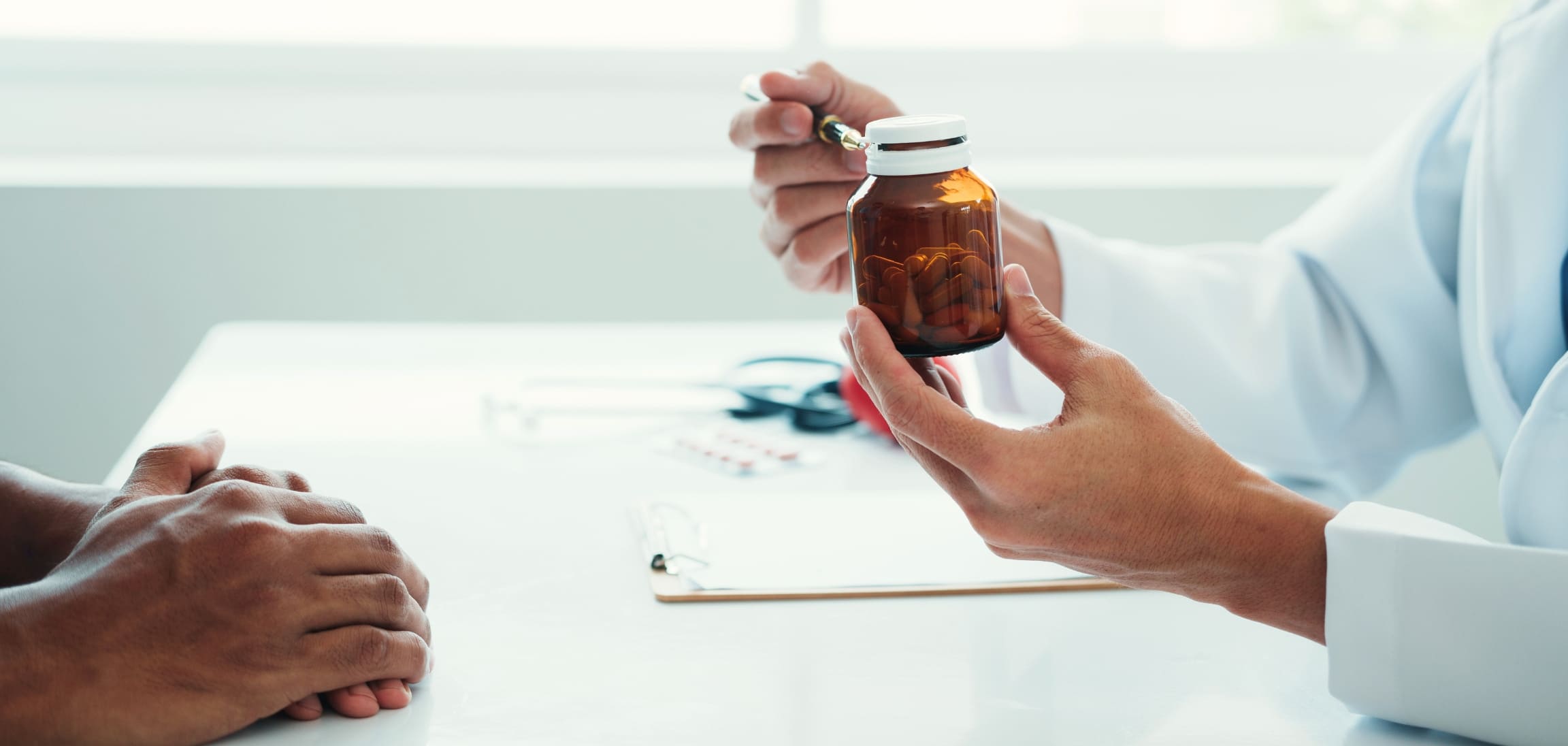The alarming rise in opioid-related overdoses and fatalities across the country highlights the urgent need for intervention and treatment options. Extra Mile Recovery’s opioid rehab center in Mississippi offers a ray of hope, providing individuals struggling with opioid addiction the chance to reclaim their lives and achieve lasting recovery.
What Are Opioids?
Opioids, also called “narcotics,” are a group of drugs that include heroin (illegal), powerful fentanyl, and prescription pain relievers like oxycodone (OxyContin) and hydrocodone (Vicodin).
When used as directed by a doctor for short periods, opioids can effectively relieve pain. However, these drugs are highly addictive. They bind to particular receptors in the brain, triggering the release of a pleasure chemical called dopamine.
Because they create both pain relief and a feeling of happiness, even people who use them as prescribed can become dependent and addicted over time.
Sometimes, people lose access to their prescribed opioids because of cost or when their prescription runs out. In these situations, some turn to illegal sources to get these drugs or switch to more potent and dangerous street opioids like heroin and fentanyl.
Let’s break down the difference between opioids and opiates in simpler terms. These words are often used interchangeably. However, there’s an important distinction.
Opioids vs. Opiates: What’s the Difference?
Opioids are a broad group of drugs that affect specific receptors in your body’s nervous system. On the other hand, opiates are a smaller group of drugs that come directly from the opium poppy plant.
Within the opioid family, there are three main categories:
- Opiates: These are some of the earliest pain-relief drugs, like morphine and codeine, popular during the Civil War to help with severe pain. In the past, people used pure opium for pain relief.
- Semi-synthetic opioids: These drugs are man-made, but they start from natural opiates. Doctors commonly prescribe them for severe pain after surgeries or serious injuries. Examples include hydrocodone (like Vicodin®) and oxycodone (like Percocet® or OxyContin®).
- Fully synthetic opioids: These are the newest and are entirely artificial; they don’t come from opiates. Two examples are fentanyl (which has been a major factor in opioid overdoses) and methadone (used to treat addiction).
Therefore, while the terms can get a bit confusing, it’s important to understand the differences between opioids and opiates and the various types within the opioid family.

Types of Opioids We Treat at our Rehab Center in Mississippi
There’s quite a range of opioids out there, and they all come with their level of risk when it comes to abuse and addiction. Take codeine and methadone, for instance – they’re on the safer side compared to morphine. Typically, you’d find these prescribed to folks dealing with some pretty intense pain. However, fentanyl is a whole different ballgame. It’s usually used sparingly due to its high risk. So, it’s essential to be aware of the differences when it comes to these opioids.
Drugs that fit in the class of prescription opioids include:
- Hydromorphone (Dilaudid)
- Meperidine (Demerol)
- Methadone
- Morphine (Kadian, Avinza)
- Propoxyphene (Darvon)
Furthermore, there are some opioids out there that you won’t find prescribed by doctors – ever. Take heroin, for example; it’s way more potent than morphine, and most folks know it’s a street drug. Then there’s this synthetic stuff called fentanyl, which has been popping up more on the streets lately. Hence, it’s way more powerful than morphine or even heroin, making the risk of overdosing on it super high. So, it’s important to be aware of these non-prescription opioids and the risks they carry. At Extra Mile Recovery, our dedicated team at our opioid rehab center in Mississippi helps you recover from various types of opioids safely and effectively.
Quick Insurance Verification
Complete the Form Below to Find Out if You Have Coverage
Signs and Symptoms of Opioid Addiction
There is no doubt about it, opioids can take a toll on a person’s physical health and how they act. Now, everyone’s journey with these drugs is unique, but some common signs show up when someone’s into opioid abuse and addiction. You might notice that opioid users start using them in ways that are quite different from when they first started. It’s all part of how these substances can change a person over time.
- The body builds up a tolerance, gradually needing more of the drug to get the same effects.
- The user develops a “dependency” on the drug and now has negative symptoms while not using.
These factors play into why overdose occurs with opiates and opioids. The user slowly uses higher levels of the drug over time, and each period of usage raises the risk of overdose.
Physical Symptoms
The user may also experience physical symptoms, some of which are flu-like, including
- Nausea and dizziness
- Vomiting and dry mouth
- Constipation
- Itching
- Sweating
Behavioral Symptoms
- The user is unable to control their use
- The user engages in risky behavior to continue their use
- The user isolates themselves from family and friends
- The user has new problems with money, work, and the law
- Lowered energy, motivation, and libido
- Poor hygiene
- Hyperactivity, babbling, and not making sense
- Disorientation and confusion
- Depression
- Sudden mood changes and inappropriate anger
At Extra Mile Recovery, the team of professionals at our opioid rehab center in Mississippi will assess the symptoms and recommend a personalized treatment plan.

Suffering from Opioid Addiction? You’re Not Alone
Reach Out to Us Today – We Can Help
Opioid Detox and Withdrawal Symptoms
When it comes to opioids, detox needs to be handled with care. At Extra Mile Recovery, we strongly advise against anyone trying to kick the opioid habit without professional help. In our opioid rehab center in Mississippi, we’ve got separate programs for women and men, so you’ll always have the right support.
You see, once you’re hooked on pain pills or opiates, quitting isn’t a walk in the park. The common term is “withdrawal,” and trust us, it’s no walk in the park. Opioid withdrawal can be pretty darn uncomfortable and rough. Here’s what you might experience during it:
- Increased cravings
- Mood problems, including irritability and anxiety
- Thoughts of suicide
- Shaking and feeling cold
- Insomnia
- Muscle and bone pain
- Increased heart rate and blood pressure
- Abdominal pain, vomiting, diarrhea, and dehydration
Quitting opioids is rough causing unbearable cravings and discomfort, which often causes the user to return to their substance but can also result in overdose. During the early days of withdrawal, the body’s sensitivity to the drug changes, making it easier to take too much if relapse occurs.
The period of withdrawal from opioids like pain pills and heroin is commonly known as “dope sickness which brings on vomiting and diarrhea, leading to dehydration and other health complications. Opioid withdrawal typically lasts 3-5 days but may last as long as 10 days.
In some cases, people quitting opioids suffer from a long-term condition called post-acute withdrawal syndrome (PAWS) and may have one or more of the symptoms of opiate withdrawal lasting as long as ten months.
At Extra Mile Recovery, we provide various recovery services and programming options for women and men at our opioid rehab center.
Begin Recovery at Our Opioid Rehab Center in Mississippi
At Extra Mile Recovery, we understand that drug detox should never be a solitary journey. Whether you’re battling prescription or non-prescription opioids, going through detox alone can be perilous.
We create personalized treatment plans tailored to client’s unique circumstances and addiction experiences.
Our secluded campuses, nestled in nature, maintain small group sizes to provide individualized care and foster lasting connections among participants.
We believe in addressing addiction holistically, combining evidence-based and holistic therapies to tackle every aspect of withdrawal and recovery challenges.
If you or a loved one is grappling with opioid addiction, make that courageous step and reach out to our opioid rehab center in Mississippi.

